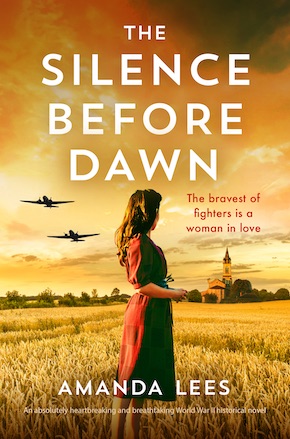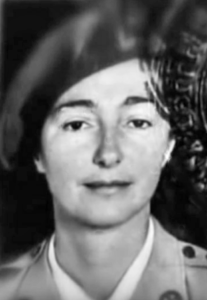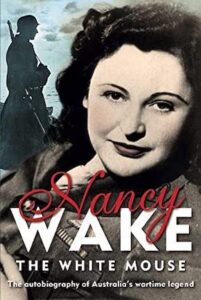Amanda Lees: Her secret service
by Karin SalvalaggioMUCH HAS BEEN WRITTEN about the virtues of dedication, service and sacrifice in the wake of the passing of Queen Elizabeth II. The internet is flooded with photos of her in her youth. The ones of her in uniform training to become a driver and mechanic during the Second World War are as inspirational today as they must have been eighty years ago. At the time, these images would have been seen by some as radical and wholly inappropriate for a young woman yet, unbeknownst to the British public, the government was training women as secret agents and parachuting them into hostile territory throughout Europe. We’ll never know how many young women the Queen inspired and what paths those women took, but we owe her a debt of gratitude for paving the way.
Amanda Lees captures some of that subversive, feminist World War II magic in her historical romance The Silence Before Dawn. Set in the dark heart of Nazi-occupied France in 1944, the novel opens outside a besieged farmhouse in Provence. The successful resistance network Marianne has been leading is scattered and on the run after being attacked by the Germans. Sacrifice and bravery will be required if she is to succeed in thwarting the enemy and rescuing her fiancé Jack from the clutches of Klaus Barbie, the Butcher of Lyon.
Marianne is based on the many fearless young women who acted as secret agents during the Second World War. Many died before they were able to fulfil their missions, and of those who survived and thrived as leaders of the resistance, radio operators and spies, few are remembered. The Silence Before Dawn inspires readers to learn more about these brave young women whose dedication, service and sacrifice changed the course of history.
Karin: Writing historical fiction is a labour of love. It requires much more than opening the curtains in the morning and peering outside to see if there’s something interesting to write about. To achieve a discernible level of authenticity the author must embed themselves in the time and place of their choosing. What is it that about the French Resistance that inspired you take such a deep dive into World War II? Is there anything in your background that makes this remarkable time in world history personal to you?
Amanda: My father, who died when I was three, went from Oxford where he was studying to serve at the age of nineteen in World War II with Military Intelligence. After that he went on to serve his country as a civilian in similar ways. I have always been fascinated by the work he did and by the bits of information I gleaned about it from my mother. I have also always loved history since my schooldays and that, combined with an equal love of France, led me to explore the work of the British Special Operations Executive and the French Resistance, along with the US Office of Strategic Services and various other clandestine units, all of them made up of remarkable people.
My first television role was as Communist Resistance Girl in ’Allo ’Allo, along with a couple of Dachshunds under my arm. I am possibly the only historical fiction writer writing about World War II with that experience.”
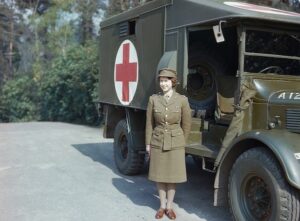
HRH Princess Elizabeth in the Auxiliary Territorial Service, April 1945. Imperial War Museum/Wikimedia Commons
I came across so many stories of courage, ingenuity and extraordinary persistence in the face of a seemingly unbeatable enemy. Then there were the human stories of sacrifices made, loves lost and found and great passion in the midst of soul-crushing circumstances. After I had stumbled across little-known stories of missions and manoeuvres that helped win the war, I knew I had the framework to people with the characters who were already forming in my mind. To me, they represent the heroes and heroines who gave us the peace we still enjoy today. That peace is now threatened by world events and so I felt that we once again needed to be reminded of their outstanding bravery, their indefatigability and their sheer refusal to ever give up.
On a lighter note, while I was still an actress my first television role was as Communist Resistance Girl in ’Allo ’Allo on BBC TV, along with a couple of Dachshunds under my arm. I am possibly the only historical fiction writer writing about World War II with that experience. It just felt like another sign that this was what I was supposed to write and, obviously, it was the pinnacle of my acting career!
The Silence Before Dawn is a feminist tour de force. Marianne and Juliette hold powerful positions within the French Resistance and have multitudes of men under their command. These are strong female characters who are experts in espionage, hand-to-hand combat and sabotage. Marianne trained as an SOE agent in England before parachuting into war-torn France. I can’t imagine the bravery that such a leap of faith took. Could you tell us a little about the real-life heroines who inspired your characters and why we don’t know more about them? I can’t imagine them readily sliding back into traditional roles as housewives and mothers. What was their legacy following the war?
World War II was an extraordinary time for women, a time when they emerged from the backroom of domesticity into the forefront of a war that was won as much on stealth as it was on brute force. Women made much better agents than men because they blended in better – and because of the sexism that abounded at the time. The Germans in particular simply did not believe that a woman could also be serving as a spy. This made it easier for the women of the SOE and the Resistance to carry out acts of sabotage as well as acting as couriers and radio operators, all of them extremely dangerous roles.
I based my characters on a number of these women, some better known than others including Nancy Wake, Marie-Madeleine Fourcade, Pearl Cornioley, Sonya Butt, Yvonne Baseden and Christine Granville (a.k.a Krystyna Skarbek). I wanted my characters to embody the qualities they all possessed of resilience, intelligence, courage and the belief that a woman could carry out clandestine operations as well as any man. After the war, as much as I would like to say that they all went on to long and happy lives, there were some stories that ended in tragedy or abject poverty. Christine Granville, the beautiful and brave Polish countess who was Churchill’s favourite spy, was dismissed from the service with a month’s salary and later stabbed to death by a jealous lover in a hotel in Earl’s Court, having had to take work as a waitress and then as a cabin steward on the boat where she met him.
Despite their service for their country, and indeed the world, most agents, men and women, were not looked after once they returned to civilian life. Many struggled with what we would now recognise as PTSD and could not fit back in to a society which, in some cases, actually shunned them. Others went on to lead distinguished lives, Marie-Madeleine Fourcade chairing several committees including the Defence of Interests in France and Europe, while others like Odette Sansom testified at the Nuremberg trials. We don’t know more about them because they abided by an old-fashioned code of duty and honour which meant they didn’t speak about what they had done during the war, some for many years and others for the rest of their lives. It was a combination of reticence and rectitude that we could do with more of on social media today.
I’ve already asked about what inspired you to write about the Second World War. Now I’d like to know about the type of research you undertook. Are there any books, podcasts, or online articles you recommend to a reader who wants to delve a little deeper into this amazing era and the fearless women who took a central role? Did you manage to spend any time in Lyon?
I read and continue to read a vast amount about World War II and the era. Any list of the books and articles I consulted would fill several pages. I ordered and read the SOE training manual along with as many works as I could find that were actually written by those who were there, such as Nancy Wake and Leo Marks. I wrote and researched most of The Silence Before Dawn during lockdown and therefore couldn’t go to Lyon although it’s a city I know and love. I was fortunate, however, to have a friend who was living there at the time and so we could message back and forth with me checking details and her filling in bits of local historical colour that she obtained from her friends there. Some recommendations for those who are interested and want to learn more include The White Mouse by Nancy Wake, Between Silk and Cyanide by Leo Marks, Beaulieu by Cyril Cunningham, A Life in Secrets by Sarah Helm, The Spy Who Loved by Clare Mulley and Madame Fourcade’s Secret War by Lynne Olson.
We know that Nazism and fascism were defeated in World War II, and I think, through the books and films set in that era, we can reassure ourselves that the human spirit truly does conquer all.”
There is a tremendous amount of uncertainty in the world today. Europe is at war again, climate change is wreaking havoc and inflation is hitting all-time highs. It would be completely understandable if readers wanted to escape into cosy cat mysteries, but that’s not what they’re choosing to buy online and in bookshops. Why do you think historical novels about one of the most calamitous eras in human history continue to hold such universal appeal? And what can a book set in 1944 tell us about the world today?
I think the most important thing that a book set in 1944 can tell us is that it could all happen again, albeit in a vastly different and probably swifter way. That’s because modern warfare encompasses cyber warfare and weapons they would not have even dreamt about during World War II. What we are dealing with now is a similar political slide to the far right which is both dangerous and indicative of the harsh economic situation we are currently facing. I think, therefore, that people would rather escape into a time where we know the resolution and take comfort from that. We know that Nazism and fascism were defeated in World War II, and I think, through the books and films set in that era, we can reassure ourselves that the human spirit truly does conquer all.
I tend to avoid writing sex scenes unless the manuscript absolutely demands it. They are to be approached with a degree of caution as they are notoriously difficult to write. I salute your bravery as you have included FOUR rather steamy interludes in your novel. You clearly have a knack for writing about sex. What wisdom do you have to impart to writers on writing a great sex scene?
Thank you. I have to say that my agent first suggested I take out all the sex scenes as they might slow down the pace of the action and then, realising that wasn’t the case, insisted I put them all back in again. I remember spending a rather long Friday afternoon doing so, throwing in a couple more scenes for good measure. People were actually having a great deal of sex during World War II, as they tend to do in highly stressful situations.
It was a time when people genuinely lived for the moment, not knowing if they would ever see tomorrow. Again this was, if you like, a blow for feminism and another indicator of the growing movement towards sexual liberation. This had, of course, already started during the 1920s and other more licentious eras, but war simply created more opportunity as women worked alongside men in all kinds of situations. As for writing a sex scene, I write my best ones when I’m huddled up in a dressing gown suffering from flu, as I did on one occasion, or when I’m facing a deadline. All inhibitions go out the window and I simply write. So I guess my best advice is don’t think – just do it.
I’d love to hear about what you’re working on now. Will there be more books about Marianne and Jack and their perilous adventures fighting the Nazis behind enemy lines?
I’m currently writing the third book in the series and I have just finished copyediting the second book, Paris at First Light, which comes out in November. I have plotted out seven books in the series so far and absolutely love the way it gives me the freedom to build upon the characters, their relationships and the trajectory of the war as well as the ramifications for Europe and, indeed, the entire world. I am about to drop all of them behind enemy lines once more on another perilous mission, which parallels one in real life where we not only had to send our agents behind enemy lines before the end of the war but extract the agents we already had in place there. Some of those agents included diplomats and double agents who served with the Abwehr and within the German military. All, of course, will be revealed in Book Three and I can’t wait for your readers to read that one too.
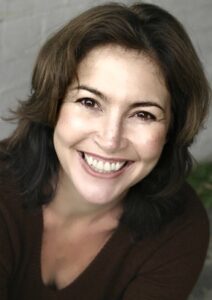 Amanda Lees was born in Hong Kong and survived a convent boarding school and a Jesuit boys’ school before being summarily ejected from the latter. She inherited her thirst for adventure from her parents who met in the jungle in Borneo where her mother had set up a hospital and her father, a former Gurkha intelligence officer and Oxford-educated spy, was probably up to no good. The Silence Before Dawn is published in paperback, eBook and audio download by Bookouture.
Amanda Lees was born in Hong Kong and survived a convent boarding school and a Jesuit boys’ school before being summarily ejected from the latter. She inherited her thirst for adventure from her parents who met in the jungle in Borneo where her mother had set up a hospital and her father, a former Gurkha intelligence officer and Oxford-educated spy, was probably up to no good. The Silence Before Dawn is published in paperback, eBook and audio download by Bookouture.
Buy from Amazon
amandalees.com
@amandalees
@bookouture
Author portrait © Harry Rafique
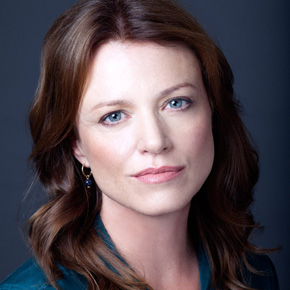 Karin Salvalaggio is the author of the Macy Greeley crime novels Bone Dust White, Burnt River, Walleye Junction and Silent Rain and a contributing editor at Bookanista. Her fiction to date is set in towns that border the Montana’s wilderness, a uniquely spectacular landscape she fell in love with as a child. Her proudly independent characters inhabit stories about the American dream gone wrong. She is currently working on a crime novel set in California. Jessica Carson has returned to her conservative roots after working as a cop in Berkeley, one of America’s most liberal cities. The transition is not without difficulties. The police detective she’s replacing was involved in the 6 January riots and her estranged son has become immersed in Antifa.
Karin Salvalaggio is the author of the Macy Greeley crime novels Bone Dust White, Burnt River, Walleye Junction and Silent Rain and a contributing editor at Bookanista. Her fiction to date is set in towns that border the Montana’s wilderness, a uniquely spectacular landscape she fell in love with as a child. Her proudly independent characters inhabit stories about the American dream gone wrong. She is currently working on a crime novel set in California. Jessica Carson has returned to her conservative roots after working as a cop in Berkeley, one of America’s most liberal cities. The transition is not without difficulties. The police detective she’s replacing was involved in the 6 January riots and her estranged son has become immersed in Antifa.
karinsalvalaggio.com
Karin on Bookanista
@KarinSalvala

